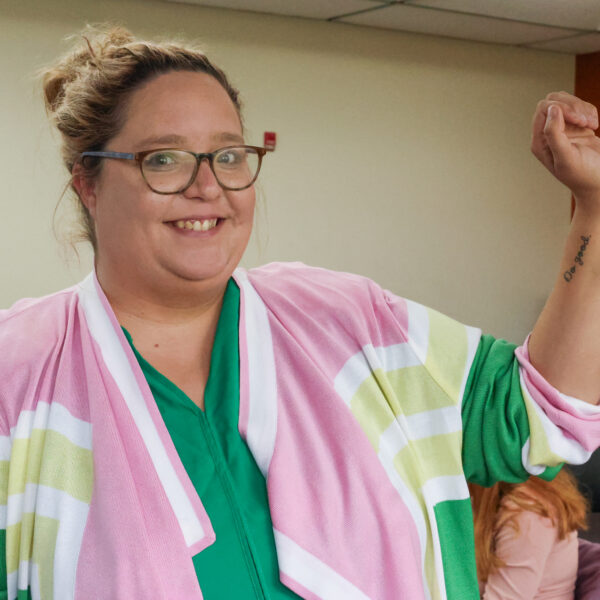Jasmine LaBine Brings the Spirit of Mr. Feeny to Albion College Classroom

Integrating Classic TV Wisdom into Modern Communication Studies
Albion College’s visiting instructor of communication studies, Jasmine LaBine, has turned an iconic 1990s television mentor into a living classroom discussion. By citing the early‑career lessons of George Feeny—Best known from *Boy Meets World*—LaBine creates a framework that blends nostalgia with contemporary pedagogical strategies. Students connect personal memories of the show with the concrete skill sets they’ll need for their next chapters.
How a ‘Do Good’ Tattoo Became a Class Room Manifesto
During her tenth year in the academy, LaBine unveiled a new tattoo marinated with the simple phrase, “Do Good,” in italics that traces her forearm. The mantra reflects her own teachers’ ethos: act with integrity, support peers, and pursue growth relentlessly. As a teaching laboratory, this unveiling allowed LaBine to invite the class to share their own values and to align every lesson with tangible outcomes—critical listening, responsible messaging, and purposeful leadership.
Connecting Lessons from A Sitcom to Business and Media
LaBine’s strategy involves incorporating specific episodes into modules on mass communication, interpersonal skills, and sports leadership. For example, she aligns the “Sock It to Me” moment—where a student balances ambition with academic duty—to a workshop on workplace ethics and time management. Students replicate the processes of script‑writing, producing short news segments, and negotiating professional relationships while reflecting on how a friendly teacher guided the plot.
Recognition Beyond the Campus Borders
The Washington Post recently highlighted LaBine and her mentorship approach in an article commemorating William Daniels’ appearance on *Dancing With the Stars.* The piece not only celebrated Daniels’ longevity but underscored how his portrayal inspired educators worldwide. The feature showcased that professors like LaBine interpret Mr. Feeny’s guidance not as a script, but as a set of didactic principles—empathy, challenge, celebration.
From Fiction to Reality: What LaBine Learns About Students
LaBine’s personal narrative—watching Boy Meets World through adolescence—provides a relatable bridge for sociology, media, and business majors alike. She contends that the show’s portrayal of nuanced topics such as mental health, inequality, and family dynamics offers safe discussion territory. The result: students articulate analytic insights and practice empathy, skills that resonate throughout their career planning.
Practical Takeaways for Educators
1. Embed Storytelling. Use culturally recognizable texts to illustrate theory. Encourage students to find parallels between media tropes and real‑world practice.
2. Promote Reflective Practices. Ask students to note moments where a fictional mentor influenced them. Use these reflections to differentiate learning objectives.
3. Balance Challenge and Support. Adopt a feedback rhythm that mirrors Mr. Feeny’s approach—celebrate successes, quickly address mistakes, and provide actionable steps forward.
How Students Can Apply These Insights to Their Own Paths
By actively evaluating media through a skills lens, students sharpen multilayered analysis. For instance, a sports communication major might dissect how a broadcast coverage frames athlete narratives, or a mass‑communication student could critique headline bias. These practiced habits translate directly into internships where nuanced storytelling is critical.
Focus on the Communication Studies Program at Albion College
Albion College’s communication program blends liberal arts with applied media training. The curriculum emphasizes critical listening, cross‑cultural dialogue, and ethical persuasion. With faculty like LaBine, the program provides real‑life mentorship grounded in sustainable professional values. Alumni note that this foundation prepares them for leadership roles in public relations, broadcast journalism, corporate communication, and beyond.
Career Launchpad Opportunities for Graduates
- Internships with regional news outlets and public relations agencies
- Faculty‑led symposiums with industry experts featuring real‑time case studies
- Certification in advanced communication analytics and digital storytelling
- Mentoring circles that pair seniors with upper‑division students for peer review
Next Steps for Prospective Students and Career‑Seekers
If you’re looking for an academic environment that values purposeful interaction and rigorous debate, consider the communication studies major or minor at Albion College. Their 100‑plus‑student community offers personalized advising and a strong alumni network focused on civic engagement and career advancement.
Get in Touch and Explore Further
Schedule a campus visit, talk with admissions staff, or request detailed program brochures. You can also explore current research projects by faculty and students on the website. These options will help you understand how Albion’s values match your aspirations.
Final Thoughts on Influencing the Next Generation
Jasmine LaBine’s textbook example shows that a single, compelling mentor narrative can elevate academic dialogues. By combining popular culture with actionable communication tools, she illustrates that teachers shape not just opinions but lifelong professional identities. As students finish their studies, they carry forward a philosophy of curiosity, integrity, and contributions that mirror a Mr. Feeny‑inspired ethic: dream, try, and do good.
Ready to Join the Conversation?
• Apply to Albion College today
• Schedule a campus tour
• Explore the communication studies program
• Request more information from admissions
• Read more on our news and events page

